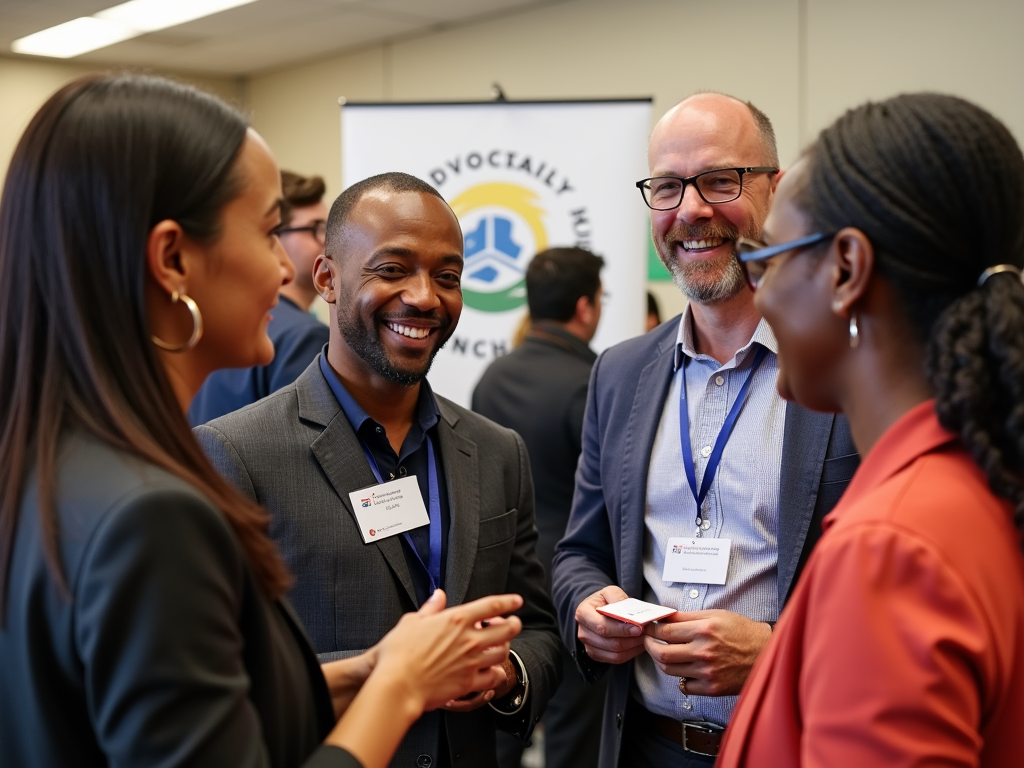Top Networking Tips for Advocacy Volunteers: Build Connections That Matter
By , March 24, 2025
Networking is a vital skill for advocacy volunteers. It helps you connect with supporters, influencers, and fellow advocates who can boost your cause. Whether you're raising awareness or influencing decisions, strong relationships make a difference. This article shares practical Networking Tips for Advocacy Volunteers to help you succeed.

Why Networking Matters in Advocacy
Advocacy is all about creating change. To do that, you need people—lots of them. Networking lets you meet others who care about your cause. It opens doors to resources, ideas, and support. For example, connecting with a local leader might help you get a meeting with a policymaker. Or, meeting another volunteer could spark a new campaign idea. Volunteer training for advocacy work often skips this, but it’s key to growing your impact.
Think of networking as building a team. You’re not just collecting names; you’re finding allies. These connections can: - Share your message with new audiences. - Offer skills or knowledge you don’t have. - Stand with you when it’s time to act. The more you network, the stronger your advocacy becomes.

Go to Events That Match Your Cause
Events are goldmines for meeting people. Look for conferences, workshops, or community meetings tied to your advocacy. These places are full of folks who already care about the same things you do. Don’t just show up—be ready to talk and listen.
Try these: - Conferences: Big ideas and big names. - Local Meetups: Real people affected by your cause. - Casual Gatherings: Easy chats over coffee.
Bring a smile and a few questions to get things started.
Last year, I went to a clean water workshop. I met a volunteer who knew a council member. We teamed up, and soon, we had a meeting to push our idea. That’s the power of showing up. Set a goal before you go—like meeting three new people—and you’ll leave with more than you expected.

Use Social Media to Connect
Social media isn’t just for selfies—it’s a networking tool. Platforms like Twitter and LinkedIn are perfect for volunteer advocates. Share your work, join chats, and follow people who inspire you. Here’s how:
| Platform | Best For | Quick Tip |
|---|---|---|
| Fast updates | Use #Advocacy to find folks | |
| Professional ties | Post about your cause | |
| Community groups | Join local advocacy pages |
Engage, don’t just post. Comment on others’ stuff to build real bonds.
I once tweeted about a park cleanup and got a reply from a group doing the same. We met online, then in person. Now, we’re partners. That’s social media working for Networking Tips for Advocacy Volunteers. Keep it real—people spot fakes a mile away.

Nail Your Elevator Pitch
Imagine meeting someone who could help your cause. You’ve got 30 seconds—what do you say? That’s your elevator pitch. It’s short, clear, and makes them care. Try this: 1. Hook: “Did you know 1 in 5 kids lacks books?” 2. Mission: “I volunteer to get books to kids.” 3. Impact: “We’ve delivered 500 so far.” 4. Ask: “Want to help?” Practice it until it’s smooth. It’s your ticket to turning strangers into supporters.
[Placeholder: Expand on crafting and practicing an elevator pitch with personal insights—approx. 150 words.]

Build Real Relationships
Networking isn’t about numbers—it’s about trust. Be yourself and focus on helping others. Maybe you share a tip with a new contact or offer to pitch in on their project. That’s how you turn a handshake into a partnership. After a chat, send a quick note: 'Loved hearing about your work—let’s stay in touch.' It shows you mean it.
[Placeholder: Additional insights on authenticity and maintaining connections—approx. 150 words.]

Team Up with Others
Advocacy shines when you work together. Find groups or people with similar goals. Suggest a small project—like a joint event—to start. I once partnered with a food bank volunteer for a drive. We doubled our reach because we combined our contacts. Talk openly and share the wins—it builds trust for bigger things later.
[Placeholder: Expand on identifying partners and collaboration benefits—approx. 150 words.]

Follow Up Every Time
Meeting someone is step one—following up is step two. Send a message within a couple of days. Say thanks, mention something you talked about, and suggest a next move. Like: 'Great meeting you at the rally—loved your recycling idea. Coffee next week?' It’s simple but keeps the connection alive.
[Placeholder: More tips and examples on effective follow-up—approx. 150 words.]
Wrap-Up: Make Networking Work for You
Good networking powers up your volunteer efforts. Go to events, use social media, perfect your pitch, build real ties, team up, and follow through. These Networking Tips for Advocacy Volunteers aren’t hard—they just take effort. Start small, be genuine, and watch your cause grow. You’ve got this!